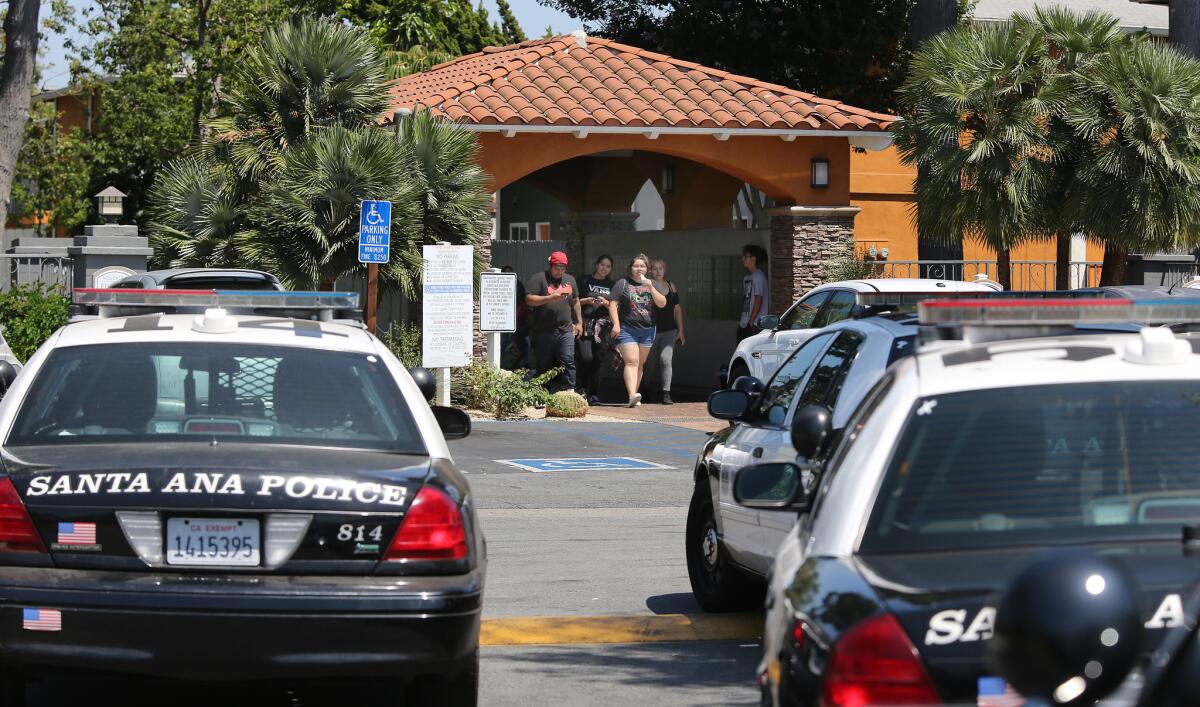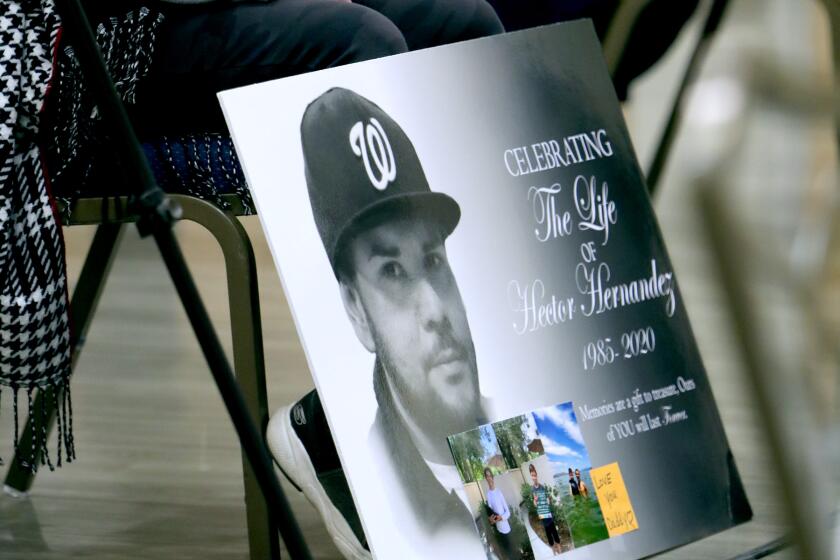Santa Ana discusses formation of civilian police oversight commission

Under the leadership of a new mayor and three new council members, the Santa Ana City Council this week discussed the formation of a civilian police oversight commission.
City staff spent the last few months compiling information on other civilian police oversight programs and presented it to the council at the Tuesday meeting.
Most council members conveyed favor for the commission, which Mayor Pro Tem David Penaloza said is “long overdue.”
The details of the commission will be hammered out in the ensuing months.
Community input will possibly help decide what form the oversight commission takes. A city survey showed that a combined 72.5% of respondents strongly agree or agree that police oversight is needed in Santa Ana.
Respondents listed top priorities for the proposed commission to be transparency, community outreach, use of statistical pattern analysis, open communication with the police department, independence, access to public records, increased resources, increased protection for peace officer rights and support for government and elected officials.
The consideration of the commission comes amid a nationwide reckoning with police brutality since the killing of George Floyd earlier this year.
“I think that this oversight commission is going to give us the ability to look closely at the root causes of mass incarceration, police misconduct,” said new Councilman Johnathan Hernandez. “And I think when we do that, we can really cultivate some solutions that help us with those that are directly impacted by crime and violence and everything else that comes with living in urban communities like this.”
At the meeting, council members were presented with three different models of civilian police oversight commissions: investigation-focused, review-focused and auditor/monitor models.
Bill Brown could only watch as his friend was shot to death by a Fullerton police officer in his front yard.
According to the presentation, the investigation-focused model relies on independent investigations of complaints against officers, while review-focused models center around commentary on completed investigations and making recommendations to police executives.
The auditor/monitor model aims to instill change by making recommendations to police departments after reviews of police policies, practices or training. This model examines how the department deals with complaints investigations, including the quality of the investigations, findings and whatever discipline was given.
The presentation included an overview of various existing programs in cities throughout the state, including Riverside and Anaheim.
Anaheim’s Police Review Board is comprised of seven residents. The city also contracts with the Office of Investigative Review Group, which is given access to confidential files to provide investigations and reports on the police department.
Most council members were supportive of either an investigation-focused commission, an auditor/monitor model or a hybrid of the two.
Mayor Vicente Sarmiento said he specifically favored the Riverside model, which has investigatory powers.
“I do think there’s a lot of value in a commission ... whether it’s investigatory and, or, auditor/monitor,” Sarmiento said. “I think that’s where I would be leaning towards. I like the Riverside model from what I see just at first glance, because it seems like it’s a blend.”
Newly elected Councilwoman Jessie Lopez proposed a model similar to Oakland’s, which has the power to fire and hire a new chief.
Hernandez said that he would like to have people on the commission who have been through the justice system.
“As this country is facing and as we’ve seen some very adverse police misconduct all throughout the country, I think it’s necessary to have an ideological shift in the inclusivity of the criminal justice system,” Hernandez said.
All the latest on Orange County from Orange County.
Get our free TimesOC newsletter.
You may occasionally receive promotional content from the Daily Pilot.





